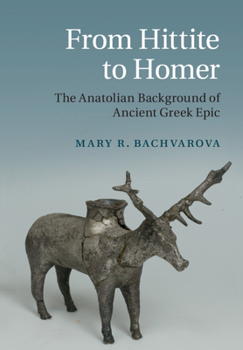From Hittite to Homer
Select Format
Select Condition 
Book Overview
This book provides a groundbreaking reassessment of the prehistory of Homeric epic. It argues that in the Early Iron Age bilingual poets transmitted to the Greeks a set of narrative traditions closely related to the one found at Bronze-Age Hattusa, the Hittite capital. Key drivers for Near Eastern influence on the developing Homeric tradition were the shared practices of supralocal festivals and venerating divinized ancestors, and a shared interest in creating narratives about a legendary past using a few specific storylines: theogonies, genealogies connecting local polities, long-distance travel, destruction of a famous city because it refuses to release captives, and trying to overcome death when confronted with the loss of a dear companion. Professor Bachvarova concludes by providing a fresh explanation of the origins and significance of the Greco-Anatolian legend of Troy, thereby offering a new solution to the long-debated question of the historicity of the Trojan War.
Format:Paperback
Language:English
ISBN:1108994105
ISBN13:9781108994101
Release Date:December 2020
Publisher:Cambridge University Press
Length:689 Pages
Weight:2.38 lbs.
Dimensions:1.4" x 6.7" x 9.6"
Customer Reviews
0 rating





